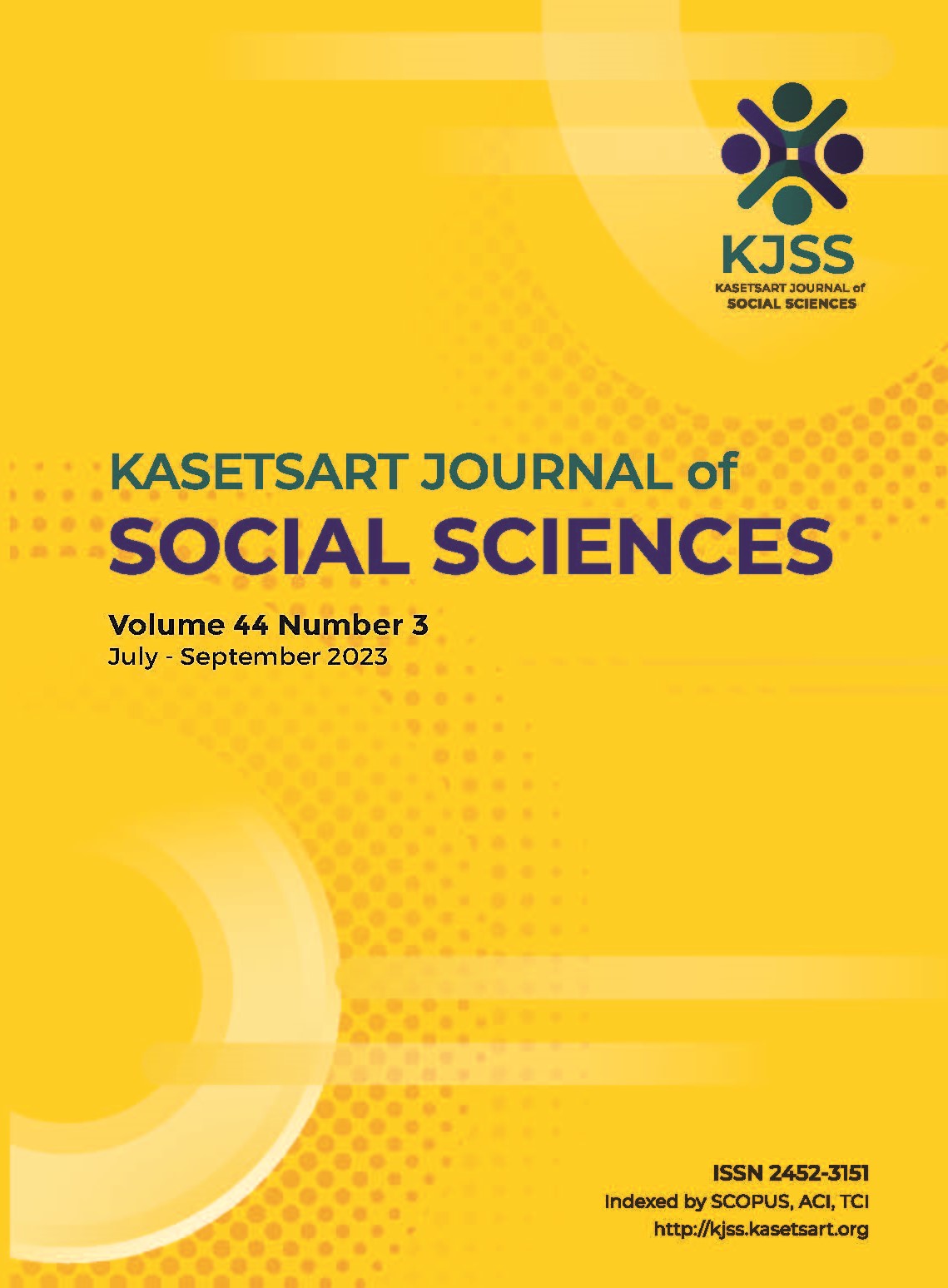Regime type and Thailand’s foreign policy position, 1950–2020: Some statistical evidence
Keywords:
alignment, foreign policy position, regime type, Thai foreign policy, ThailandAbstract
Despite applying various theoretical lenses, methodological diversity is less observed in the literature on Thai foreign policy. Quantitative analysis of Thailand’s international relations is scarce, which leads to a methodological gap. This study aims to fill this gap by addressing the simple yet essential question: is regime type (i.e., dictatorship or democracy) related to Thailand’s foreign policy position? Regime type is operationalized by the Bjørnskov–Rode regime data and Thailand’s international position by the (foreign policy) similarity score of the Thailand–United States dyad using Cohen’s kappa (κ) statistics. The κ score can serve as a measurement of Thailand’s satisfaction level with the American world order, postulating its international alignment. Using correlation, cross-tabulation, and chi-square analyses, we identified a negative significant relationship between regime type and the κ score for the Thailand–United States dyad during the period 1950–2020. That is, democracy in Thailand is related to its low satisfaction level with the United States. This satisfaction level with the United States-led international order does not necessarily indicate that Bangkok would closely align with Beijing. Methodological limitations render the results tentative, and further quantitative research on Thai foreign policy is required.
Downloads
Published
How to Cite
Issue
Section
License

This work is licensed under a Creative Commons Attribution-NonCommercial-NoDerivatives 4.0 International License.
This is an open access article under the CC BY-NC-ND license http://creativecommons.org/licenses/by-nc-nd/4.0/










